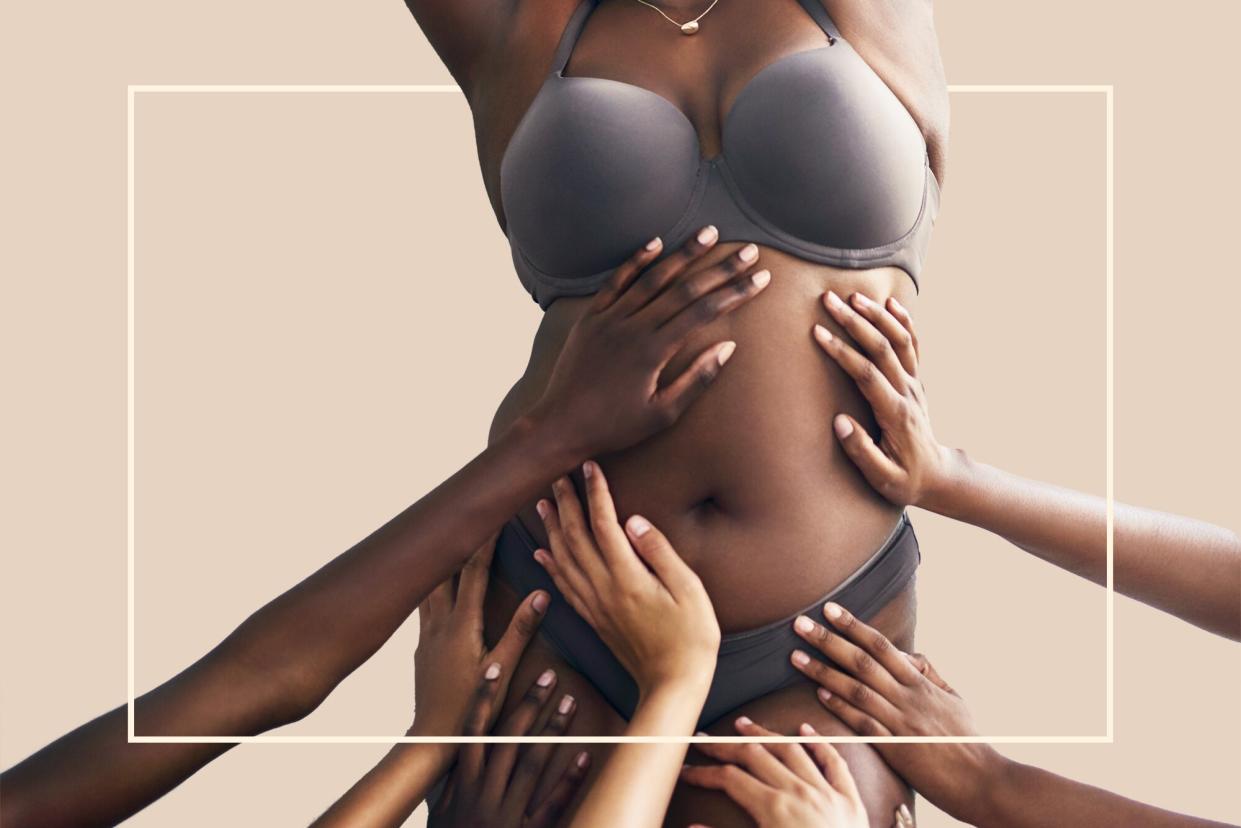How Developing 'Body-Image Resilience' Can Help You Unlearn Toxic Narratives

Getty Images
To truly love your body, you need to focus on what it's capable of — not what it looks like. Here, body-image experts and identical twins Lexie Kite, Ph.D., and Lindsay Kite, Ph.D., the cofounders of Beauty Redefined — a nonprofit that helps women and girls improve their body image and self-worth — and the authors of More Than a Body (Buy It, $14, amazon.com), explain how to do just that and the many benefits that can come with this newfound "body-image resilience."
Why is negative body image so pervasive?
Lexie: "We grow up in a world that objectifies us. We learn what makes us valuable and worthy of attention when we're 2 or 3 years old. We discover that we're valued for how we appear, and we judge whether our bodies are good or bad based on the feedback we get from others. That's when self-objectification kicks in, and we become focused on the image of ourselves. Our identity becomes divided and split from the true us — who we really are and what we want to do — because we feel defined by how we look.
"For instance, let's say we don't go swimming — even though we love the water — because we don't want people to see us in a bathing suit. We worry that our thighs are too jiggly or our butt is too big. Research and real-life experience show that monitoring your body according to your fears of what someone else thinks of the way you look can impede your happiness, your health, and your relationships." (Related: I Finally Shifted My Negative Self Talk, But the Journey Wasn't Pretty)
What does your message — "your body is an instrument, not an ornament" — mean?
Lindsay: "In our research, when we ask women how they feel about their bodies, 80 percent of them describe how their bodies look. Our definition of positive body image isn't about believing your body looks good — it's knowing that your body is good. To be sustainable, body image needs to be rooted in how we feel inside. It's knowing that our bodies are instruments to do the things we want and not just ornaments to be looked at."
Lexie: "Having a positive body image is something that's rooted so deeply within you that it can't be taken away by someone else's opinion of you. It's self-directed. You get to decide that you love yourself, that you are valuable." (See also: How Celebrity Social Media Affects Your Mental Health and Body Image)
What is "body-image resilience" — and how can you develop it?
Lexie: "The first step is recognizing and acknowledging the ways our culture of objectification is harming us and holding us back from things we really want to do. Then we need new ways to respond to those things. That's when body-image resilience kicks in — it equips you with the skills and strategies to get out of the mindset of trying to fix yourself and into the mode of actively pursuing the things you want to do. The only way to unlearn the narratives in your head that say, 'You're going to be embarrassed for people to see you this way,' is to challenge them."
Lindsay: "We've grown up thinking that our happiness, confidence, and desirability are on the other side of weight loss or an anti-aging fix. But they're not. The most beautiful women in the world still get lonely and deal with rejection, unhappiness, and depression. So we need to be willing to tell ourselves a different story. That's something I very much try to do: prove to myself that my body never had to look the way I wanted it to for me to have the life I wanted. My dream body was never real, but my dreams are — and I can fulfill them. This has been empowering for me, and I want other women to do it too. Prove wrong the narrative that says you have to look a certain way before you can do things. That's how you find happiness and confidence."
Can moving your body help you with this process?
Lindsay: "Definitely. Redefining health and fitness for yourself is a really useful strategy for building body-image resilience. Pretty much everyone grew up believing that our health can be measured by what's on the outside, like our weight and measurements. But when we objectify our health like that, it makes it so much less personal and achievable.
"The better way is to focus on how you feel and what you can do. Measure your health and fitness in terms of stamina, endurance, strength, and internal indicators like cholesterol, blood pressure, and heart rate. Research shows that women who do this will be able to keep it up and will be much happier and healthier in the long run. It can be a game-changer." (See also: Study Says Just One Workout Could Improve Your Body Image)

